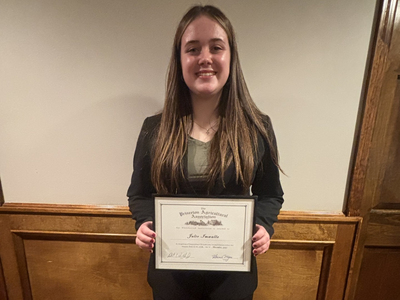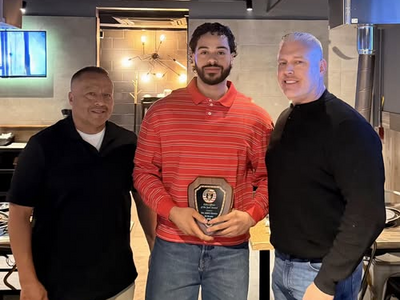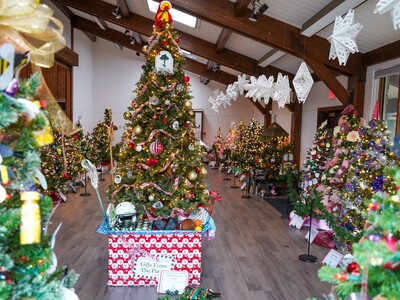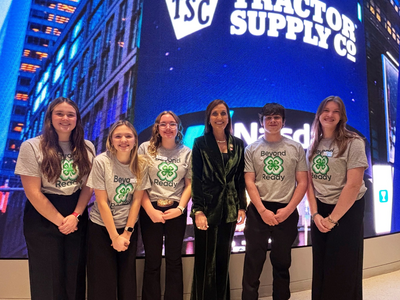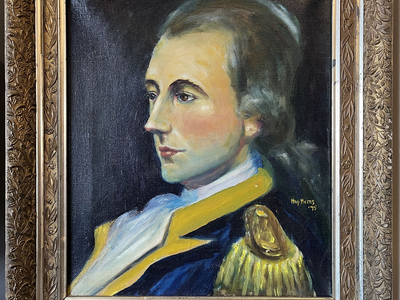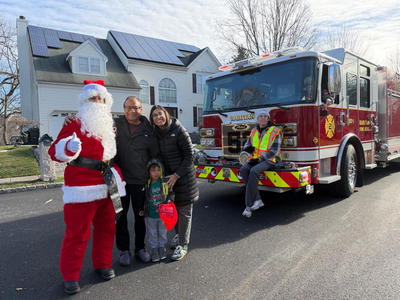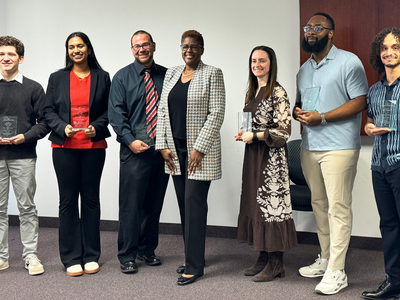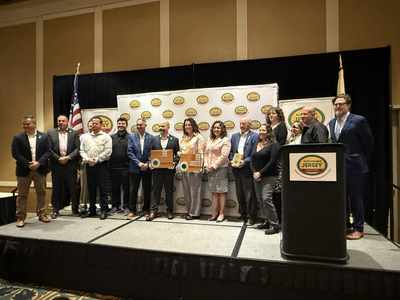Around the U.S. - Native Americans fight barriers to voting, 100 years after being recognized as U.S. citizens
Republished by permission for the Democracy Now initiative.
WOLF POINT, Mont. – Louise Smith sits at her daughter’s dining room table on the Fort Peck Indian Reservation, poring over photographs and newspaper clippings – the everyday scraps that weave a tapestry of her 101 years of life.
She revisits the decades she spent as an Indian Health Service nurse; her retirement to care for her husband, Buck, before he died; and how, late in life, she was named the grand marshal at a parade this year marking the 100th anniversary of the Indian Citizenship Act.
With an umbrella in hand to shield her from rain, she rode the parade route in a convertible clad with a banner that read: “Montana’s Oldest Native American Voter.”
The Indian Citizenship Act of 1924 took effect nine months after Smith was born, recognizing Native Americans as U.S. citizens and, on paper, extending the privileges of citizenship to them. Yet for decades, states continued to block Indigenous people from voting.
Utah considered anyone living on tribal lands nonresidents and ineligible to vote. Other states, including Arizona, barred people under guardianship from registering to vote and used a court case that likened the relationship between tribal nations and the U.S. to that of “a ward to his guardian” to enforce that ban against Native Americans.
It wasn’t until Smith was in her 40s that the federal government overruled state laws and guaranteed Indigenous people the right to vote by way of the 1965 Voting Rights Act.
Even now, Smith still casts a ballot every election. “It’s important,” she says, “because you want to know who you’re voting for or what they’re supposed to do for you after you get them in.
“We all should be voting, you know?”
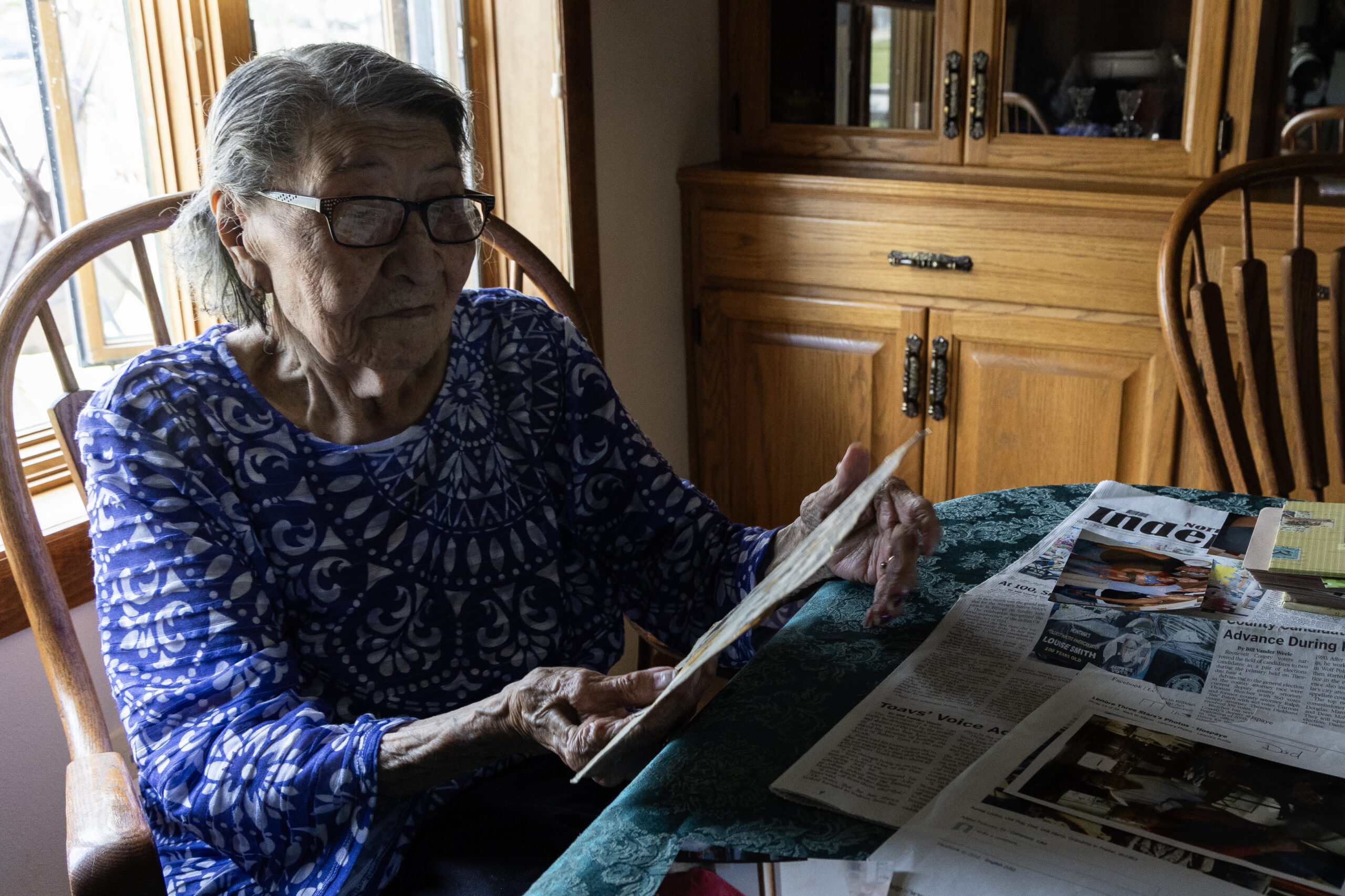
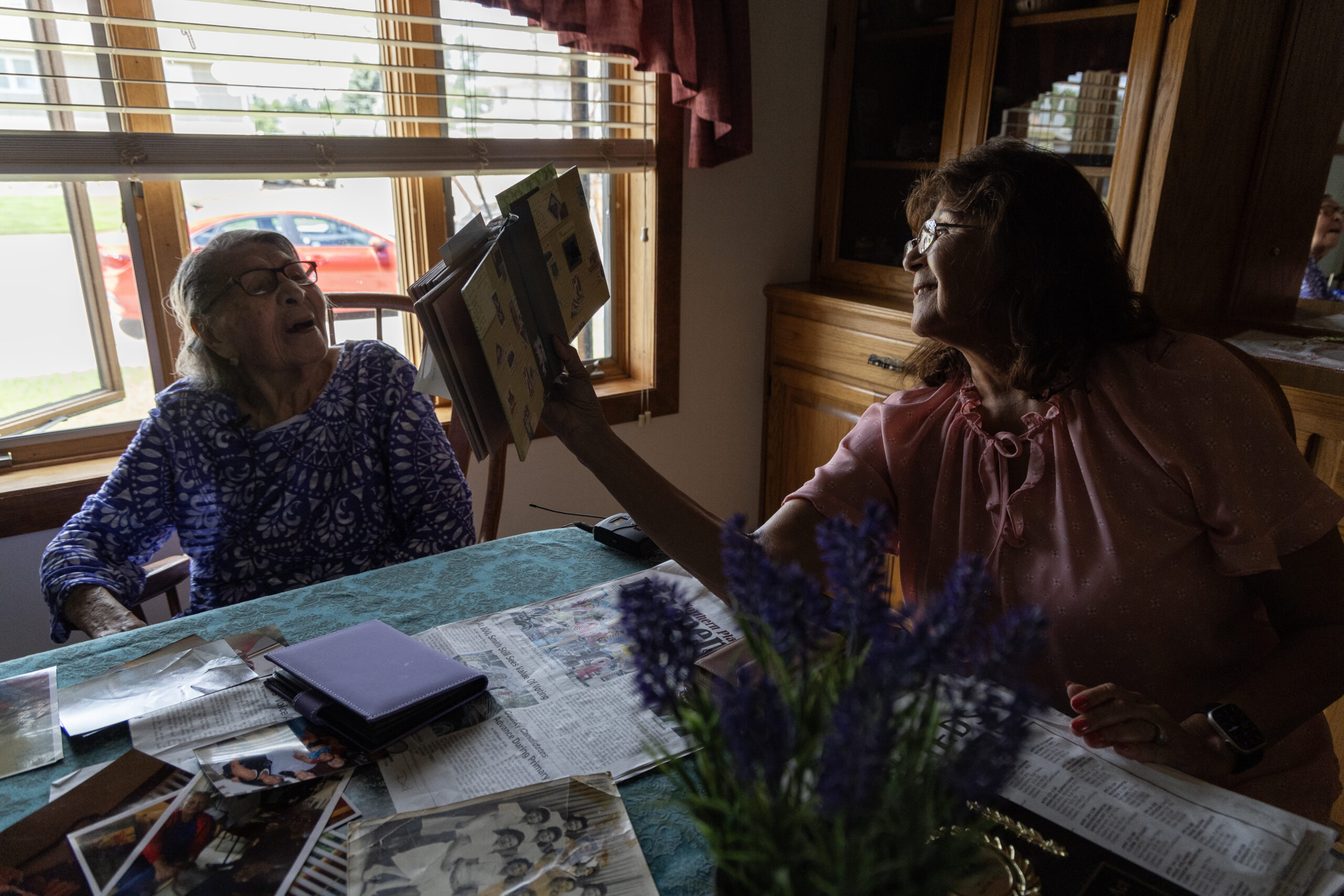
Left: Louise Smith goes through photos at her daughter’s home in Wolf Point, Mont. Right: Smith, left, and her daughter, Edna, look through newspaper clippings and family photos. (Photos by Christopher Lomahquahu/News21)
Today, though, experts warn that some states are once again restricting Native Americans’ access to voting – even as a few, including Nevada, work alongside tribal nations to expand their ability to participate in democracy.
“We’ve consistently been bringing new cases every year,” said Jacqueline De León, a senior staff attorney at the Native American Rights Fund (NARF), which provides legal assistance to the nation’s 574 federally recognized tribes and has brought numerous lawsuits over voting rights violations. “There’s more cases than we have the capacity to cover.”
Those cases include a battle to ensure Native Americans in Thurston County, Nebraska – where more than 50% of residents are Indigenous – have an equal shot at representation on the Board of Supervisors.
And one in North Dakota, where lawyers for years have fought state officials over electoral maps that courts say discriminate against Native Americans.
And yet another in Arizona, where the Tohono O’odham Nation and the Gila River Indian Community sued over a law requiring voters registering for federal elections to provide proof of residency using a physical address. A judge last year struck down the requirement after advocates noted homes on tribal land often have no address.
Some experts blame these recent efforts on changes to the federal Voting Rights Act. In 2013, the U.S. Supreme Court struck down a section of the act that forced some counties and states to get clearance before changing election procedures, a mandate intended to protect against discrimination.
Since that ruling, efforts to suppress the vote have increased, said voting rights attorney Patty Ferguson-Bohnee, who directs the Indian Legal Program at Arizona State University’s Sandra Day O’Connor College of Law.
“Now you can pass all kinds of laws without being precleared,” she said. “There’s been an erosion of voting rights over time … and it’s really up to Congress to do something.”
In 2021, President Joe Biden directed a steering group to study voting barriers Indigenous voters face, and the resulting report included several recommendations for state and federal lawmakers – including a push to pass the John Lewis Voting Rights Advancement Act. Named for the late congressman and civil rights leader, the bill includes provisions specific to Indigenous voters.
In July, a congressional committee published another report that found Indigenous voters “continue to face persistent and substantial barriers to the right to vote in federal, state and local elections.” Its author, U.S. Rep. Joseph Morelle, D-N.Y., said he hoped a better understanding of the problems would compel Congress to take “strong action” to protect Indigenous voting rights.
Advocates describe the Lewis Voting Rights Act as a revitalization of the landmark 1965 law and argue it would restore needed protections against discriminatory practices that target Native Americans and other voters of color. The bill, however, continues to languish in committee.
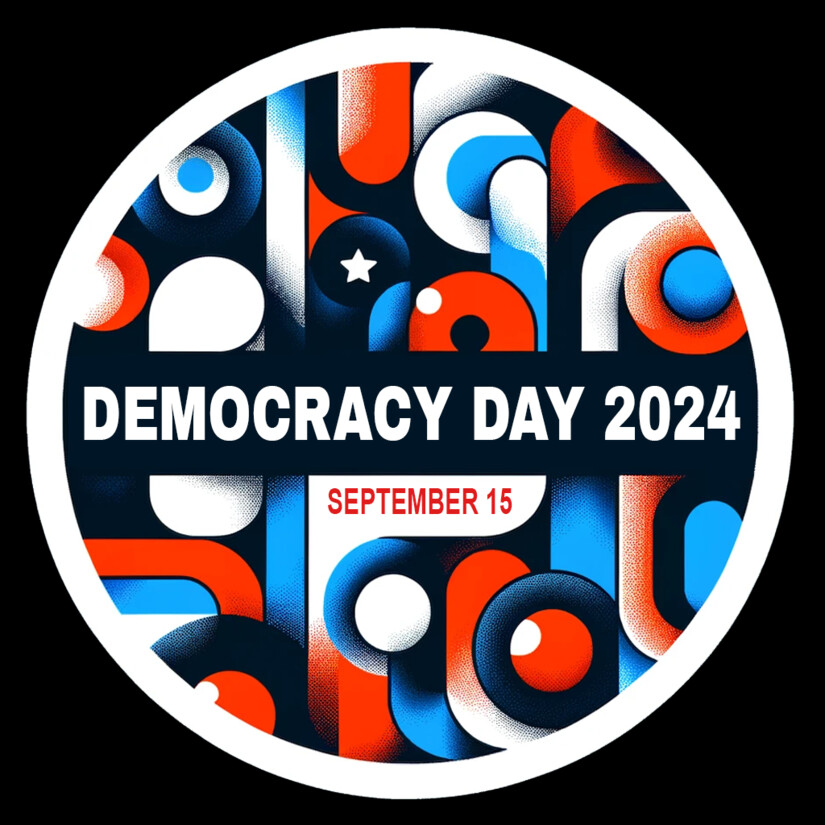
More News from Raritan
- UPDATE: AG’s Office Identifies the Driver and Members of the New Jersey State Police Involved in Pursuit and Shooting in Orange, N.J., on November 9, 2025 On Freeway Drive, the Acura struck a civilian vehicle, a black Mercedes-Benz.
- Somerset County 4-H Member Julie Earns Top Honors at Princeton Agriculture Celebration Julie was named the overall winner of the Princeton Agriculture Scholarship.


